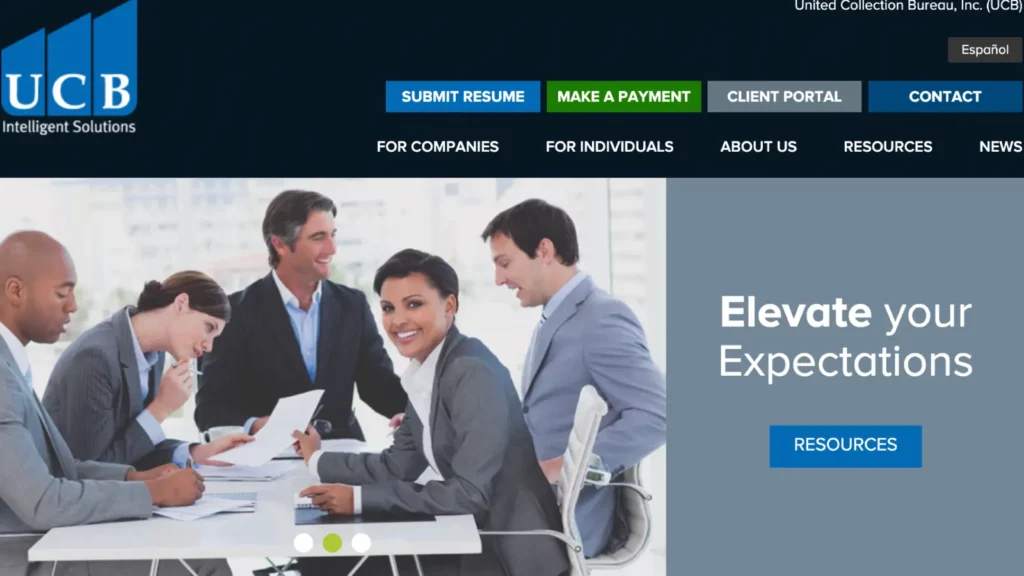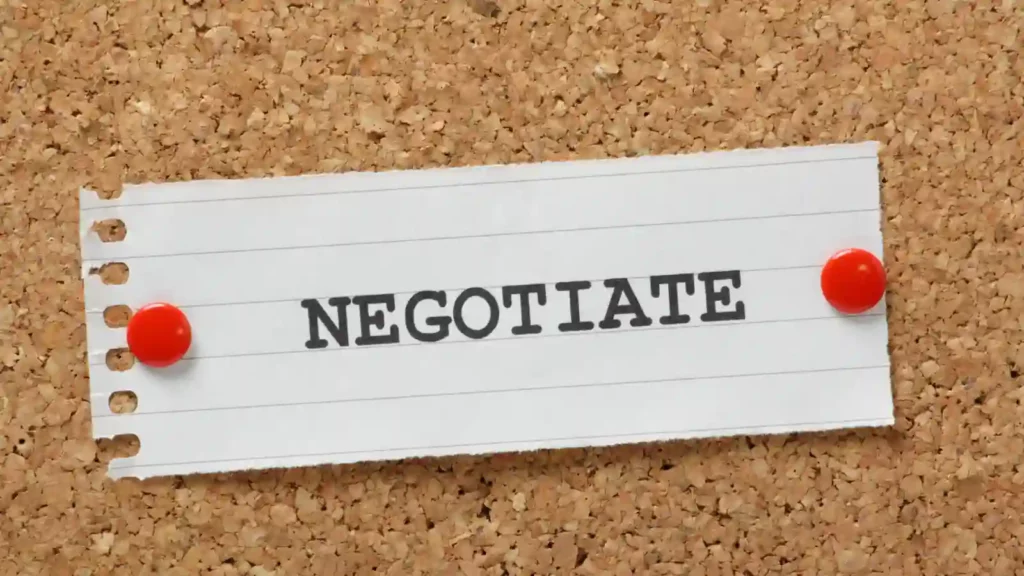Are you being contacted by UCB Inc? Wondering if United Collection Bureau is legitimate?
This article provides information about UCB, including complaints and bad reviews. Find out how the FDCPA can protect you from UCB debt collectors and what steps you can take if they start contacting you.
Learn about your rights and how to negotiate a payment plan. Stay informed on how to avoid being contacted by UCB collectors.
Key Takeaways:
- Understand your rights under the FDCPA to protect yourself from UCB collections.
- Verify the debt and negotiate a payment plan to handle UCB collectors.
- Stay proactive by paying debts on time, keeping records, and communicating with creditors to avoid being contacted by UCB collectors.
What is UCB Inc?

UCB Inc, also known as United Collection Bureau, is a company specializing in debt collection services.
Founded in 1959, UCB Inc has established itself as a trusted name in the industry, aiding individuals and businesses in recovering outstanding debts. Their team of professionals employs a customer-centric approach, prioritizing ethical and legal practices in all debt collection processes.
UCB Inc offers a range of services, including debt recovery, skip tracing, credit reporting, and account monitoring, catering to various client needs.
By using advanced technology and strategies, they ensure efficient and effective debt collection while maintaining compliance with relevant regulations.
Plus traditional debt collection methods, UCB Inc also focuses on educating clients about financial responsibility and debt management, reflecting their commitment to long-term financial wellness.
Is United Collection Bureau Legitimate?
United Collection Bureau‘s legitimacy has come into question due to numerous complaints and negative reviews.
Consumers have voiced concerns over aggressive collection tactics used by United Collection Bureau, alleging harassment and intimidation tactics.
Many have reported misleading information provided during collection calls, causing confusion and frustration.
The Fair Debt Collection Practices Act (FDCPA) plays a crucial role in regulating how debt collectors like United Collection Bureau operate, protecting consumers from abusive practices.
What Are the Complaints and Bad Reviews About UCB?
Complaints and bad reviews about UCB typically involve issues with aggressive debt collection tactics and poor customer service.
Consumers have expressed frustration over what they perceive as unfair and harassing behavior by UCB’s debt collectors.
Many customers have reported receiving multiple calls a day, even after requesting to cease communication or disputing the debts. This kind of relentless pursuit can leave individuals feeling stressed and overwhelmed.
The lack of empathy and understanding from the customer support team at UCB has only exacerbated these negative experiences.
It seems that the company’s focus on collecting debts overshadows their commitment to assisting and supporting their clients during challenging financial times.
How Can the FDCPA Protect You from UCB Debt Collectors?
The FDCPA offers protections to consumers from UCB debt collectors by outlining rights and regulations that debt collectors must adhere to.
One important provision of the FDCPA is the restriction it places on debt collectors from using deceptive or abusive practices when contacting consumers for debt collection purposes. This includes prohibiting actions such as making false statements or threats, harassing individuals, or using unfair methods in the pursuit of debt payments.
The FDCPA mandates that debt collectors must provide accurate information regarding the debt, including the amount owed and the creditor to whom the debt is owed. This ensures transparency and accountability in the debt collection process.
What to Do If UCB Collectors Start Contacting You?

If UCB collectors begin contacting you, it is crucial to understand your rights under the FDCPA and take appropriate actions to address the situation.
Verifying the legitimacy of the debt is the initial crucial step. Request validation of the debt in writing within 30 days of the initial contact to ensure you are dealing with a legitimate collector.
If there are any doubts about the validity of the debt or the conduct of the collector, considering seeking legal assistance is a wise decision. Legal professionals specialize in consumer rights can provide valuable guidance and support.
If the collector engages in abusive or unfair practices, filing a complaint with the Consumer Financial Protection Bureau (CFPB) can alert regulatory authorities to potential violations.
Exploring negotiation options to resolve the debt amicably can also be beneficial. Initiate communication with the collector to discuss payment plans or settlements that work for both parties.
Understand Your Rights Under the FDCPA
Understanding your rights under the FDCPA is essential when dealing with debt collectors like those from UCB.
Consumers have the right to request verification of the debt in writing within 30 days of initial contact, giving them the power to dispute any inaccuracies. The FDCPA prohibits debt collectors from engaging in abusive practices, such as incessant calling or using threatening language.
Your rights also include the right to sue a debt collector in a state or federal court within one year of a violation. It is crucial to be aware of these protections to ensure you are not taken advantage of during debt collection processes.
Verify the Debt
Verifying the debt with UCB collectors involves requesting a validation notice and sending a formal debt dispute letter if necessary.
Upon receiving a debt collection notice from UCB, individuals should promptly request validation of the debt by sending a written request via certified mail. This validation notice should include details such as the amount owed, the original creditor, and a statement confirming the collector’s authority.
If discrepancies arise during the verification process, consumers have the right to dispute the debt. This can be done by submitting a formal dispute letter to UCB, clearly outlining any errors or inaccuracies found in the debt information. It is crucial to include any supporting documents that can validate the inaccuracies claimed.
Negotiate a Payment Plan

Negotiating a payment plan with UCB collectors can help resolve outstanding debts through structured agreements or pay-for-delete arrangements.
When faced with mounting debts, having open communication with UCB collectors is crucial. By initiating discussions about repayment terms, individuals can explore various options to alleviate their financial burdens.
One popular avenue is to propose a structured payment plan that is manageable within one’s budget constraints. Such arrangements typically involve set monthly installments over an agreed period.
Alternatively, individuals may also consider negotiating pay-for-delete agreements with UCB collectors, a strategy where the debt is erased from credit reports upon settlement. This approach can be appealing for those looking to improve their credit standing while settling debts.
File a Complaint with the CFPB
Submitting a complaint to the CFPB about UCB collectors can help address issues of misconduct or violations of consumer rights.
When individuals encounter unfair practices or misleading behavior from debt collectors working for UCB, they can seek resolution through the Consumer Financial Protection Bureau (CFPB). The process entails gathering relevant evidence, such as communication records and account statements, to support the complaint.
Upon submission, the CFPB reviews the complaint, investigates the allegations, and works towards resolving the issue in compliance with consumer protection laws.
By reporting these instances to the CFPB, consumers not only seek redress for themselves but also contribute to upholding ethical standards in debt collection practices.
Seek Legal Help

Engaging legal assistance when dealing with UCB collectors may be necessary, especially in cases involving potential legal action or disputes.
Legal counsel plays a crucial role in navigating the intricacies of debt collection laws and regulations, providing expert guidance on how to respond to collection attempts effectively.
By consulting a lawyer, individuals can gain a better understanding of their rights and legal options, such as negotiating settlements, challenging inaccurate information, or defending against potential lawsuits.
How Can You Avoid Being Contacted by UCB Collectors?
To prevent unwanted contact from UCB collectors, consumers can take proactive measures to manage their debts and protect their financial well-being.
One effective strategy is to ensure timely debt payments to creditors, as this demonstrates financial responsibility and reduces the likelihood of debt collection actions.
Maintaining open lines of communication with creditors can help in negotiating manageable repayment plans or seeking financial assistance if needed.
It is crucial for consumers to educate themselves about their consumer rights under the law, which can give the power to them to challenge any unfair debt collection practices.
Pay Your Debts on Time
Maintaining timely payments on debts can help prevent escalation with UCB collectors and protect your credit score.
By ensuring you make your debt repayments on time, you not only avoid the stress of dealing with collection agencies but also safeguard your credit score from negative impacts. This is crucial for maintaining your overall financial stability and credibility.
Late payments can have a significant adverse effect on your credit report, making it harder for you to secure favorable terms on future loans or credit opportunities.
Staying current on your debts demonstrates your responsible financial behavior, which is essential for lenders when assessing your creditworthiness. It is a proactive step towards building and maintaining a positive financial reputation.
Keep Records of Your Payments
Keeping detailed records of your payments can serve as evidence in case of disputes or errors raised by UCB collectors.
Clear payment documentation plays a crucial role in ensuring smooth communication with UCB collectors. By having organized records, you can quickly verify any discrepancies that may arise and provide accurate information to resolve issues efficiently.
These records act as a safety net, safeguarding you against potential errors or misunderstandings. They serve as a reliable source of data to support your claims and protect your rights in case of disputes.
Communicate with Your Creditors
Open communication with creditors and debt collectors can facilitate negotiation processes and help clarify any uncertainties in the debt validation process.
By engaging in transparent discussions with creditors and UCB collectors, individuals can address any queries, verify the accuracy of debts, and explore potential avenues for resolving outstanding balances.
This openness fosters a collaborative environment that can lead to more favorable terms, such as reduced interest rates, waived fees, or structured repayment plans that work within one’s financial capabilities.
By openly communicating concerns and seeking validation of debts, debtors can ensure that they are dealing with legitimate entities and avoid falling victim to fraudulent practices.
Know Your Rights Under the FDCPA
Understanding your rights under the FDCPA, including limitations on debt collection practices, is crucial when engaging with UCB collectors.
Consumers are protected by the Fair Debt Collection Practices Act (FDCPA), which outlines rules that debt collectors must follow. These rules prohibit abusive practices such as harassment or deceitful tactics when attempting to collect debts.
It is important to be aware of the statutes of limitations that govern how long a debt collector can legally pursue repayment for a particular debt.
By familiarizing yourself with these regulations, you can ensure that your rights are respected and that any collection efforts are conducted within the boundaries of the law.
However, if you are getting calls from DCM services, here’s how to beat DCM Services.
Frequently Asked Questions
Is United Collection Bureau a legitimate company?
Yes, United Collection Bureau (UCB) is a legitimate debt collection agency that has been in operation since 1959. However, it has received many complaints and bad reviews from consumers.
What is the FDCPA and how does it protect me from UCB collectors?
The Fair Debt Collection Practices Act (FDCPA) is a federal law that outlines the rules and regulations that debt collectors, including UCB, must follow when attempting to collect a debt. It protects consumers from abusive, deceptive, and unfair debt collection practices.
Can I dispute a debt with UCB collections?
Yes, you have the right to dispute a debt with UCB collections. If you believe that the debt is not yours or the amount is inaccurate, you can send a written dispute letter to UCB within 30 days of their initial contact. They must then provide proof of the debt before continuing to collect from you.
How can I beat UCB collections?
The best way to beat UCB collections is to know your rights under the FDCPA and to be proactive in managing your debt. Keep records of all communication with UCB, including phone calls and letters. If they violate your rights, you can file a complaint with the Consumer Financial Protection Bureau.
What should I do if UCB collectors start contacting me?
If UCB collectors start contacting you, the first thing you should do is request debt validation. This means asking for proof of the debt and making sure it is accurate and belongs to you. You should also familiarize yourself with your rights under the FDCPA and keep a record of all communication with UCB.
Can I negotiate with UCB to settle my debt?
Yes, you can negotiate with UCB to settle your debt for a lower amount. It is important to keep records of any agreements and to get everything in writing. Be sure to only agree to a payment plan that you can afford, and never give UCB access to your bank account.
